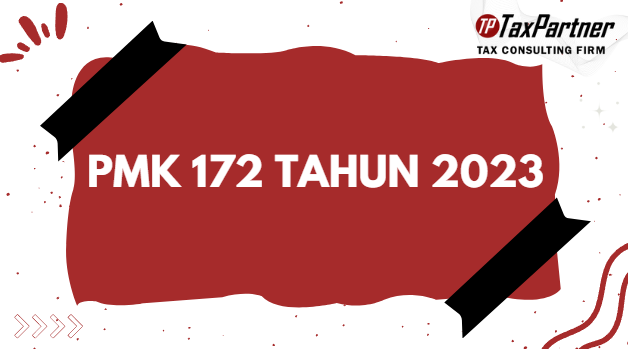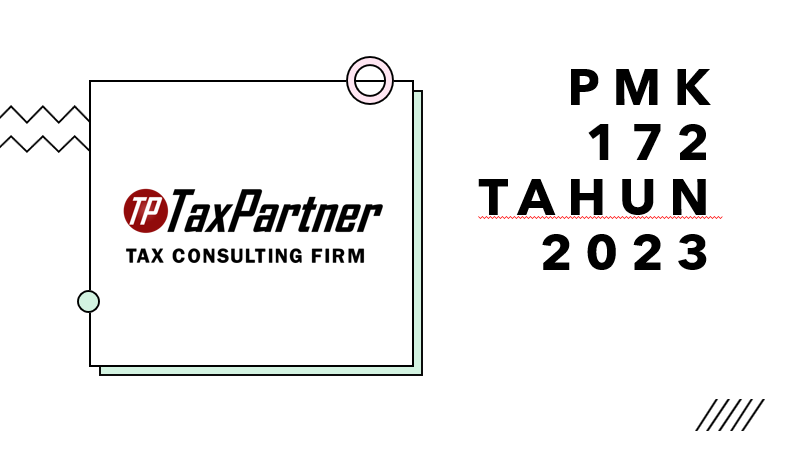Summary of Minister of Finance Regulation Number 172 of 2023
PMK 172 of 2023 is a regulation that amends several previous regulations and provides a more comprehensive guideline for Transfer Pricing in Indonesia. PMK 172 of 2023 simplifies PMK 22 of 2020 (APA), PMK 49 of 2019 (MAP), and PMK 213 of 2016 (Transfer Pricing Documentation).
The Application of the Arm's Length Principle in Transactions Influenced by Related Party
1. Definition of Related Party:
- A related party is a relationship between parties where one party has control over the other party or one party is controlled by another party, either directly or indirectly, there is a common party who directly or indirectly participates in
managerial or operational decision-making in two or more parties, and the parties are commercially or financially known or declare themselves to be in the same business group. - A related party is a state of dependence or interdependence of one party to another party due to ownership or equity participation; control; or a blood or marital relationship.
2. Application of the Arm's Length Principle (ALP):
- Transactions influenced by related party must be conducted in accordance with the arm's length principle, which is based on actual conditions, at the time of the Transfer Pricing and/or when the Related Party Transaction occurs (ex-ante
approach), and in accordance with the stages of applying the Arm's Length Principle. In addition, the value of independent transaction price indicators may use single-year or multi-year comparable data as the available data that is closest at the time of the transfer pricing and/or the occurrence of the related party transaction. - The application of the ALP must be done separately (segregated) for each type of Related Party Transaction.
- If there are two or more types of Related Party Transactions that are interrelated and influence each other in the Transfer Pricing so that the separate application of the ALP cannot be done reliably and accurately, the application of the ALP can be done by combining two or more types of Related Party Transactions.
- There are seven types of transactions that must go through a preliminary stage,
namely intragroup services, intangible asset utilization, intragroup loans, other
financial transactions, asset transfer, business restructuring, and cost-sharing
agreements.
-
- The preliminary stages for service transactions include proving that the service was indeed provided by the service provider and received by the service recipient, is needed by the service recipient, provides economic benefits to the service recipient, is not an activity for the benefit of shareholders (shareholder activity), is not for the benefit of parties solely because they are part of the business group (passive association), is not a duplication of activities already performed by the taxpayer, is not a service that provides incidental benefits, and in the case of on-call services, is not something that can be obtained from an independent party without a prior on-call contract.
- The preliminary stage for transactions related to the use or right to use intangible assets include proving the existence of the intangible asset, the type of intangible asset, the value of the intangible asset, the parties that legally and economically own the intangible asset, the use or right to use the intangible asset, the parties that contribute to the development, enhancement, maintenance, protection, and exploitation of the intangible asset, and the economic benefits obtained by the parties using the intangible asset.
- The preliminary stages for financial transactions related to loans include proving that the loan is in accordance with the actual substance and circumstances, is needed by the borrower, is used in accordance with income tax provisions, and meets the characteristics of the loan, including the following:
1. creditor acknowledges the loan economically and legally;
2. existence of loan maturity date;
3. existence of an obligation to repay the loan principal;
4. existence of payments according to the predetermined payment schedule
for both the principal and returns;
5. at the time the loan is obtained, the borrower has the ability to obtain loans
from independent creditors and repay the loan principal and loan returns as
an independent debtor;
6. based on a loan agreement made in accordance with applicable laws and
regulations;
7. there are legal consequences if the borrower fails to repay the principal
and/or returns;
8. existence of collection right for the lender as an independent creditor; and
9. provides economic benefits to the borrower. - The preliminary stages for other financial transactions involves verifying that the transaction aligns with its substance and actual circumstances. This includes assessing the type of transaction, ensuring that it is recognized both economically and legally by the parties involved, understanding the motive and purpose behind it, evaluating the economic rationale, and considering the expected benefits of the transaction.
- The preliminary stages for asset transfer transactions include proving the motives, objectives, and economic rationale; ensuring the alignment of the asset transfer with substance and actual conditions; expected benefits; and that the asset transfer is the best choice among various available alternatives.
- The preliminary stages for business restructuring includes proving the motives, objectives, and economic rationale; aligning with substance and actual conditions; expected benefits; and that the restructuring is the best choice among various available alternatives.
- The preliminary stages for cost contribution agreements include proving that the agreement was made as it would be between independent parties, is needed by the party entering into the agreement, and provides economic benefits to that party.
3. A Related Party Transaction shall be deemed not to fulfill the Arm's Length Principle if the taxpayer cannot prove that the specific Related Party Transaction is in accordance with the preliminary stages.
4. Transfer Pricing Documentation:
- Importers are required to prepare transfer pricing documents that include Local File and Master File.
- This document must include transaction details, comparable data, and arm’s length analysis.
- TP Doc must be completed no later than one month after the request is submitted for supervision or examination.
- Taxpayers must attach the Country-by-Country Report (CbCR) if the threshold is 11 trillion Rupiah based on the fiscal year preceding the reporting year.
- Taxpayers who fail to complete the documentation will face penalties as outlined by the relevant tax laws and regulations, these penalties may include:
-
- Sanctions for failing to attach the summary of the Master File and Local File:
• The Annual Tax Return is considered incomplete if it is deemed to have not been submitted, as stated in Article 3, paragraph (7) of the General Taxation Law/Undang-Undang Ketentuan Umum Dan Tata Cara Perpajakan (UU KUP). The penalties for failing to submit the SPT PPh Badan is 1,000,000, based on the legal basis outlined in Article 7, paragraph (1) of the UU KUP. - The sanctions if the DGT requests transfer pricing documentation and the taxpayer does not submit it:
• Taxpayers are considered as having failed to meet their obligation to properly organize and store Transfer Pricing documentation. Consequently, a Tax Assessment Notice/Surat Ketetapan Pajak Kurang Bayar (SKPKB) may be issued in accordance with Article 13, paragraph (1), letter b, which imposes sanctions that include monthly interest calculated at the prevailing benchmark interest rate, along with a 20% uplift factor, applicable for a maximum duration of 24 months. This is in line with the provisions outlined in Article 13, paragraphs (3a), (3b), and (3c) of the law of Harmonization of Tax Regulations/UndangUndang Harmonisasi Peraturan Perpajakan (UU HPP).
- Sanctions for failing to attach the summary of the Master File and Local File:
5. Corresponding Adjustment:
- PMK 172 regulates the corresponding adjustment procedures to address cases of double taxation.
- These adjustments are necessary if there are transfer pricing adjustments imposed by DGT or the tax authorities of the treaty partner.
- The mechanism for implementing corresponding adjustments is carried out through corrections to the Annual Tax Return/Surat Pemberitahuan Tahunan (SPT), issuance of Tax Assessment Letters/Surat Ketetapan Pajak (SKP), or corrections to the SKP, depending on the stage of the examination conducted by the DGT.
- Requirements for implementing corresponding adjustments: Domestic taxpayers must agree to the corrections made by DGT and not file legal actions against the Tax Assessment Letter (SKP).
6. Advance Pricing Agreement (APA):
-
PMK 172 also regulates the procedures and requirements for Advance Pricing Agreements (APA) aimed at avoiding future tax conflicts.
-
Dispute prevention consists of Unilateral APA, Bilateral APA, and the latest regulatory update based on PMK 172 is Multilateral APA, which can be used to prevent crossborder transactions.
-
In the event that administrative sanctions arise as a result of: corrections to the Annual Corporate Income Tax Return (SPT Tahunan PPh Badan), issuance of Tax Assessment Letters (SKP), corrections to the SKP, DGT will reduce or eliminate the administrative sanctions based on the taxpayer's (WP) application in accordance with the provisions of the General Taxation Law (UU KUP).
7. Mutual Agreement Procedure (MAP):
- PMK 172 provides guidance on the Mutual Agreement Procedure (MAP) to resolve tax disputes involving transactions between affiliates.
- The result of the MAP is a Mutual Agreement Decision Letter/Surat Keputusan Persetujuan Bersama (SKPB) and can directly serve as the basis for tax collection or tax refund.
- The Tax Billing Letter/Surat Tagihan Pajak (STP) takes into account the amount of tax stated in the SKPB.









